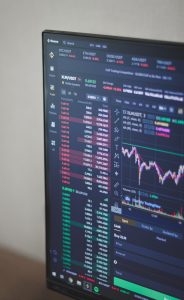Forex, also known as foreign exchange, is the largest financial market in the world. With a daily trading volume of over $5 trillion, it offers plenty of opportunities for traders to make a profit. However, trading forex successfully requires a lot of skill, knowledge, and discipline. In this article, we will discuss how to study forex successfully.
1. Understand the basics of forex
Before you start trading forex, it is essential to understand the basics of forex. Forex trading involves buying and selling currency pairs, and the objective is to make a profit from the price movements of these pairs. The most commonly traded currency pairs are EUR/USD, USD/JPY, GBP/USD, and USD/CHF. Understanding the basics of forex will help you make informed decisions when trading.
2. Learn the different trading strategies
There are many trading strategies that you can use when trading forex. Some of the most popular strategies are scalping, day trading, swing trading, and position trading. Each strategy has its own advantages and disadvantages, and it is important to choose a strategy that suits your trading style and personality. Learning different trading strategies will help you develop your own trading plan that is tailored to your needs.
3. Study technical analysis
Technical analysis is the study of price charts and indicators to identify trading opportunities. Studying technical analysis will help you understand how to read price charts and identify trends, support and resistance levels, and other important patterns. There are many technical indicators that you can use, such as moving averages, Bollinger Bands, and MACD. Learning technical analysis will help you make more informed trading decisions.
4. Understand fundamental analysis
Fundamental analysis is the study of economic and financial data to identify trading opportunities. For example, if you are trading the USD/JPY currency pair, you should pay attention to the economic data from the US and Japan. This could include GDP, inflation, interest rates, and employment data. Understanding fundamental analysis will help you make better trading decisions based on economic events and news releases.
5. Practice with a demo account
Before you start trading with real money, it is important to practice with a demo account. Most forex brokers offer demo accounts that allow you to trade with virtual money. This will help you get familiar with the trading platform and test your trading strategies without risking your own money. Practice with a demo account until you feel confident enough to trade with real money.
6. Manage your risk
Managing your risk is essential when trading forex. You should never risk more than you can afford to lose, and you should always use stop-loss orders to limit your losses. You should also use proper position sizing to ensure that your trades are not too large or too small. Managing your risk will help you stay in the game for the long term.
7. Keep a trading journal
Keeping a trading journal is a great way to track your progress and identify areas where you need to improve. In your trading journal, you should record your trades, including the currency pair, entry and exit points, stop-loss, and take-profit levels. You should also record your thoughts and emotions during the trade. Keeping a trading journal will help you identify patterns in your trading and make adjustments to your trading plan.
In conclusion, studying forex successfully requires a lot of hard work, dedication, and discipline. Understanding the basics of forex, learning different trading strategies, studying technical and fundamental analysis, practicing with a demo account, managing your risk, and keeping a trading journal are all essential components of a successful forex trading education. By following these steps, you can become a successful forex trader and achieve your financial goals.






